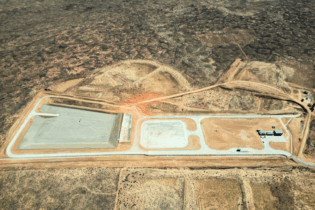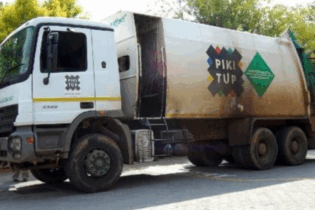Informal waste pickers recycle 90% of the recyclables collected from households in South Africa, possibly saving municipalities up to R750 million in landfill space every year.
This is according to Professor Rinie Schenck, waste management researcher. And while recognition for their contributions is growing in some places, they often face low social status, deplorable living and working conditions, and get little support from government. The South African Waste Pickers Association (SAWPA) will be hosting their 5th National Biennial General Meeting (BGM), celebrating 10 years of their worker justice struggle and unveiling the waste pickers integration guidelines for waste management at a local level. The meeting will elect new leadership for the next 2 years, and will plan and decide on the way forward for the waste picker movement in South Africa. The gathering will bring together 120 waste pickers, working in more than 70 municipalities. The waste pickers work on waste landfill sites and on the streets. Millions of people worldwide make a living collecting, sorting, recycling, and selling materials that others regard as waste. In a number of countries, waste pickers provide the only form of solid waste collection, providing widespread public benefits and leading to the achievement of high recycling rates. Currently in South Africa there are 6 material recovery facilities – also known as recycling centers – in 5 municipalities operated by waste picker cooperatives. Various municipalities have been frequenting these projects to learn from them and there is a growing hope that one day each municipality in South Africa will have at least one material recovery facility where waste pickers not only earn their livelihoods, but they are able to lead and take control of these projects and support better waste management in South Africa.South Africa has the potential of creating a number of jobs while avoiding climate change gasses produced by waste on landfill sites.
Research shows that recycling creates ten times more jobs per ton of waste compared to landfill and incineration. With the latest unemployment figures hitting a record high at 29%, formalizing the informal markets is one of the strategies that could go a long way in capping the unemployment crisis in the country. Waste pickers contribute to local economies, to public health and safety, and environmental sustainability. Increasingly, as waste is recognised as a valuable resource waste pickers face challenges due to competition from strong political and private interest The gathering will also initiate a process of formal registration for all SAWPA members, who will assist in mobilizing and documenting all waste pickers in the country. The South African Local Government Association (SALGA) will also be part of the meeting. SALGA has been working with SAWPA in formulating the waste pickers guidelines, these guidelines are to be adopted by all the municipalities with a clear mapping on how to integrate waste pickers into the municipal waste system.







